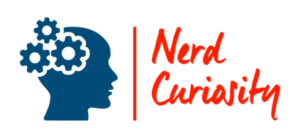In any thriving business, clear roles and distinct leadership are essential to success. Picture yourself at the helm, steering the development of a groundbreaking product or spearheading an ambitious project. Understanding the nuances between a Product Manager and a Project Manager is crucial, as they embody the strategic and executional forces that drive a business forward. Ever found yourself wondering which managerial role might align with your aspirations or skills?

The core difference is this: a Product Manager defines what to build, whereas a Project Manager oversees how to build it.
Embarking on this exploratory journey, you’ll gain insight into the focal responsibilities, the environments they thrive in, and the skill sets each role demands. We’ll uncover how product managers shape the future of a product, crafting its roadmap and aligning it with market needs. Conversely, we’ll highlight how project managers orchestrate tasks and resources, ensuring projects are completed on time and within budget. Prepare to uncover the dynamics that differentiate these pivotal roles in the business landscape.
Defining the Roles

In your quest to understand the distinct functions within business operations, grasping the diversity between a product manager and a project manager is key. Each role holds unique responsibilities, scope, and goals that are pivotal for their respective domains.
What Is a Product Manager?
A product manager defines the vision and strategy for a product, shaping what, when, and why to create. You oversee the product management lifecycle, aligning the product’s purpose with the business objectives. Your role covers a breadth of responsibilities including:
- Defining product goals and vision
- Establishing roadmaps for product evolution
- Identifying customer needs and market opportunities
- Coordinating with cross-functional teams
Assimilating insights from various stakeholders, you ensure the product remains competitive and fulfills market demands.
What Is a Project Manager?
Conversely, a project manager is tasked with the planning, execution, and closure of projects within your organization. Your efforts in project management focus on specific initiatives with set deadlines. Your role emphasizes:
- Planning project scope and schedule
- Allocating resources efficiently
- Managing risks and handling issues
- Ensuring projects align with business goals
You become a facilitator, ensuring collaborative effort turns into tangible results within the prescribed timeframe.
Key Responsibilities and Focus Areas

Understanding the key responsibilities and focus areas of product and project managers will clarify their distinct roles. While both aim to bring success to an organization, they do so through fundamentally different approaches and areas of focus.
Vision and Strategy
Your role as a product manager includes developing the vision and strategy for a product’s entire lifecycle. You’re responsible for concocting and refining the product roadmap, which acts as a strategic guide outlining the vision, direction, key actions, and progression over time. This roadmap not only aligns the team around a shared goal but also communicates the why and what behind the product to stakeholders.
Execution and Delivery
On the flip side, as a project manager, your spotlight is on execution and delivery. Your mastery of creating detailed project plans and overseeing their successful implementation is crucial. You ensure deliverables are completed on time, within budget, and to the agreed-upon quality standards. From launch to completion, you take charge of the logistical puzzle, piecing together resources, timeframes, and personnel to reach the finish line efficiently.
Tools, Techniques, and Processes

Navigating the roles of product and project management requires a distinct set of tools and methodologies. Your success hinges on selecting the right framework or software that resonates with the unique demands of each position.
Product Management Frameworks
Knowing your product inside and out starts with a solid framework. You’ll likely use a roadmap to visualize the product’s future, balancing short-term goals with long-term vision. Tools like Aha! or ProdPad prove invaluable by offering you interactive roadmaps that are easily adjustable as priorities shift. Agile frameworks, particularly Scrum, are often adopted to enhance team collaboration and efficiency. In this landscape, monitoring progress and feedback loops are crucial, which is where tools like JIRA or Trello can assist in keeping track of user stories and sprint backlogs.
Project Management Methodologies
For project management, methodologies guide you through the complexities of planning, executing, and finalizing projects. Agile is a common choice here too, due to its flexibility and focus on incremental delivery. If you seek more structure, perhaps the traditional Waterfall model is more your speed, emphasizing sequential phases that don’t overlap. As for tools, Asana stands out for project planning and monitoring which aids in identifying potential risks before they become issues. Advanced project management software like Microsoft Project provides a robust suite of tracking, scheduling, and reporting features, supporting you in steering projects to successful completion.
Collaboration and Communication

Effective collaboration and communication are pivotal in distinguishing the roles of product managers and project managers. While both are integral to the success of product development, their approaches to working with teams and engaging stakeholders are quite specific.
Working with Teams
Your role as a product manager includes setting the product vision and working with cross-functional teams to align on goals. It’s crucial to communicate the ‘why’ behind the product to ensure that everyone from developers to marketing specialists is on the same page. Emphasis on strategy over execution defines your interactions with the team.
On the flip side, project managers take charge of the planning and managing aspects to carry out the product vision. Your responsibility lies in orchestrating the team’s day-to-day tasks, keeping a close watch on project timelines, and providing frequent updates to keep all parties informed. You’re ensuring milestones are met diligently, smoothing out coordination wrinkles along the way.
Stakeholder Engagement
For a product manager, stakeholder engagement is about conveying the product’s value and gathering insights to refine the product strategy. Your expertise in communication shines as you pitch ideas and absorb feedback from various stakeholders, fostering robust relationships across the board.
In contrast, if you’re a project manager, your stakeholder engagement typically revolves around resource allocation, risk management, and progress reporting. You’re the liaison that keeps stakeholders updated with clear, concise status reports and ensures expectations are managed effectively, avoiding surprises down the line.
Measuring Success and Impact

In the realms of product and project management, success is gauged by specific metrics that reflect the effectiveness and efficiency of efforts. Understanding these metrics allows you to measure your progress and the impact of your work acutely.
Success Metrics
In your role, you’re likely familiar with Key Performance Indicators (KPIs), which serve as quantifiable measures used to evaluate the success of an organization, employee, or process in meeting objectives for performance. When considering product management, KPIs might include:
- User engagement: the frequency and depth of user interaction with the product.
- Customer satisfaction scores: a direct measure of user happiness with your product.
- Market share: a reflection of the product’s competitiveness in the market.
On the flip side, project management KPIs often focus on project completion and efficiency such as:
- Budget adherence: comparing the estimated vs. actual project cost.
- Scheduling accuracy: the precision of time estimates against actual timelines.
- Scope variation: changes in project scope, which could signal a need for course correction.
Product vs Project Outcomes
When dissecting product performance, outcomes revolve around long-term value and market presence. Are customers continuing to choose your product? Sales growth and market penetration rates are concrete indicators of this. Retention rates also offer insight into the sustained utility of your product.
Regarding project management, the outcomes hinge on the successful delivery within scope, time, and cost constraints. Did your team deliver the project on specification and pleased stakeholders with its quality? These outcomes are snapshots of project achievements and pave the way for the product’s future evolution.
Conclusion

Understanding the distinctions between product managers and project managers can enhance your approach to managing business initiatives.
As a product manager, your focus is on the overall vision and lifecycle of a product, ensuring it meets market needs and company goals. In other words, you are the product’s champion from conception to launch, and beyond.
On the other hand, a project manager’s role is all about execution. You are tasked with the tactical side of business operations—making sure specific projects are completed on time, within budget, and to the agreed specifications. Your skills in coordination and oversight are crucial to keeping everything on track.
- Product Managers: Visionaries for product lifecycle
- Project Managers: Tactical experts in project completion
Remember, each role requires a unique set of skills and a different perspective, but both are equally vital for the success of a business. Embrace your role, whether you are nurturing a product built to last or driving a project to the finish line. Your contribution is what keeps the gears of your organization turning smoothly.
